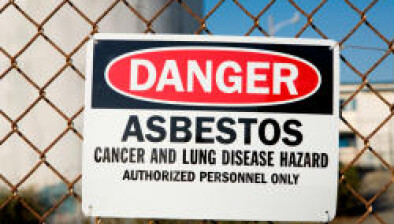Consultation begins on new asbestos medical costs bill

The formal consultation process on a new bill designed to re-claim the medical costs of treating people suffering from asbestos related diseases begins today.
Backed by charity Clydeside Action on Asbestos, the Recovery of Medical Costs for Asbestos Diseases (Scotland) Bill is being taken forward as a members bill at Holyrood by MSP Stuart McMillan.
The bill will allow NHS Scotland to claw back the costs associated with caring for people who contracted industrial diseases like mesothelioma which is caused by exposure to asbestos.
Clydeside Action on Asbestos estimate that over £20 million a year is spent by NHS Scotland diagnosing and treating people suffering from the horrendous effects of asbestos exposure. This bill will enable the NHS to re-coup those costs from insurance companies who have already settled civil claims with victims. The costs of treatment will be calculated from a patient’s initial diagnosis.
There is currently provision in Scots law for the NHS to claim from insurers the costs of treating people involved in accidents but no recovery system exits for those who have contracted industrial diseases. The fact that a recovery system is already in place for accidents means the bill’s introduction should be achieved with little difficulty.
Clydeside Action said it anticipates the bill will meet with very strong resistance from the Association of British Insurers but that it firmly believes that those who cause industrial disease should compensate the National Health Service for the strain that asbestos has placed on its finite resources.
Phyllis Craig MBE, chair of Clydeside Action on Asbestos, described today as “a very important milestone” in the fight against the awful effects that asbestos disease causes to thousands of Scots.
He said: “We are urging Civic Scotland and wider society to engage with our consultation to make clear their views. It is widely accepted that the number of people being diagnosed with asbestos conditions is increasing placing an ever greater burden on the NHS and palliative care services. The responsibility for meeting these costs rests with the employers who exposed their staff to asbestos. It is only just that the employers and their insurers have to meet the costs of care that result from their negligence.”
Stuart McMillan MSP, who has given his longstanding support to people with asbestos related disease is taking forward the bill at Holyrood. He is confident that the consultation process will see a large number of organisations and concerned Scots making their views clear.
He said: “It is estimated that over £20m per year is spent by NHS Scotland diagnosing and treating people suffering from the horrendous effects of asbestos exposure. This bill will allow the NHS to re-coup some of these costs and could be used to help future patients.”
Mr Alan Kirk, thoracic Surgeon and a leading medical specialist on asbestos conditions, is a director of Clydeside Action on Asbestos.
He said: “I would estimate that the real cost to the NHS for diagnosing and managing a condition like mesothelioma is in the region of 60 thousand pounds per patient. This is a significant sum and must be viewed in the context of more people being diagnosed with mesothelioma and other asbestos related conditions. If these sums can be recovered as part of the civil compensation case, funds are going back into the NHS to help to care for the Scottish population. I would urge as many people as possible to take part in this consultation so we can send a clear message of support for the bill’s progress.”
The bill and the consultation process has also received firm support from STUC. Its deputy leader Dave Moxham added: “The insurance industry has managed to avoid meeting their full responsibilities towards those with an asbestos related disease for decades. It is time for the employers and the insurance industry to meet their obligations and reimburse the cost of the medical care as these costs would not exist if there had not been negligence on the part of the employer. I know that the Scottish Trade Union movement and wider Civic Scotland will use this consultation to give the proposed law their full backing.”

















